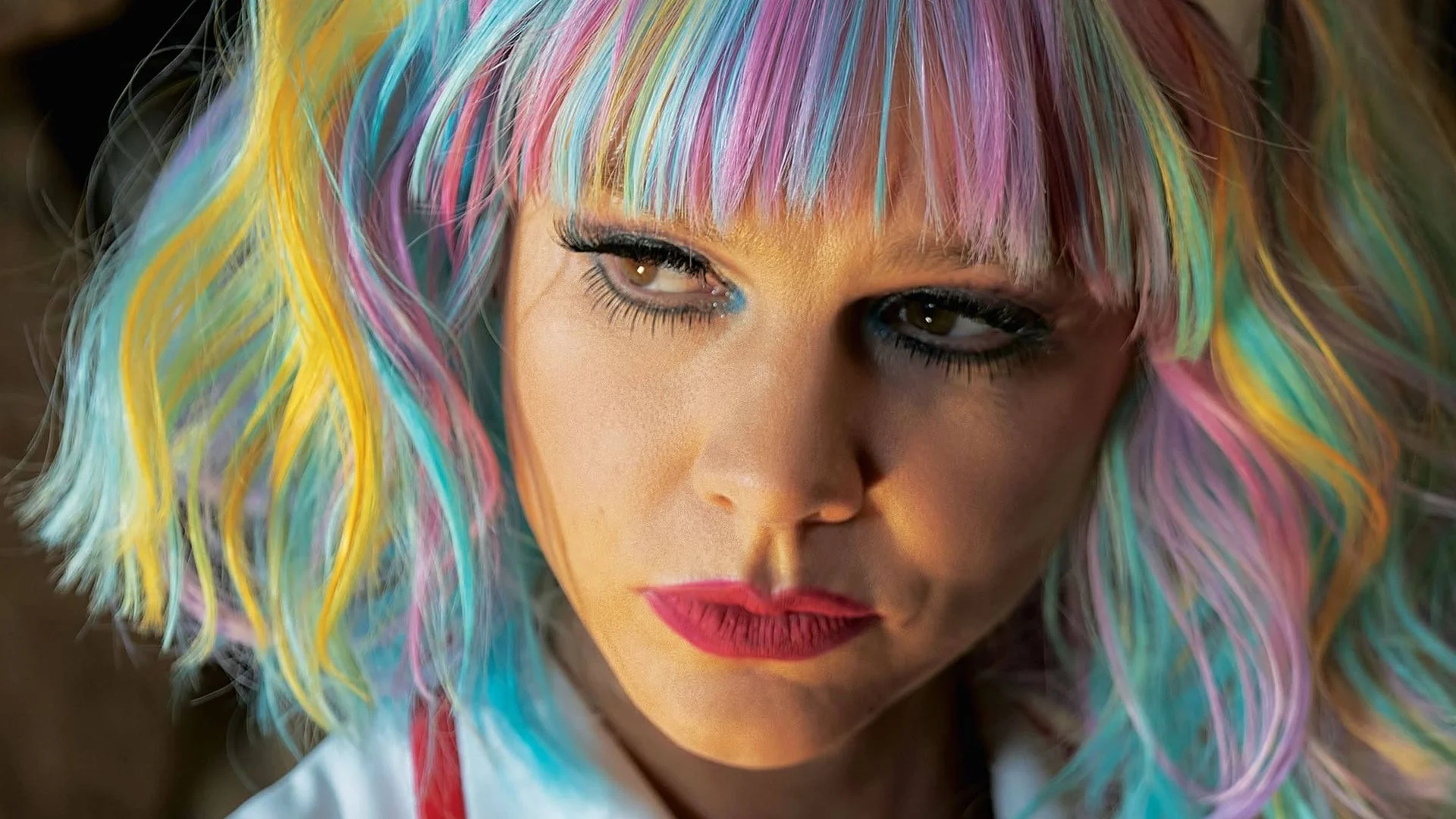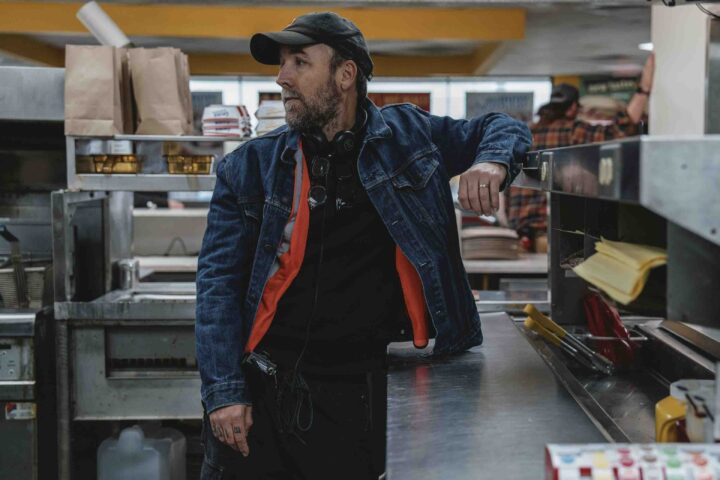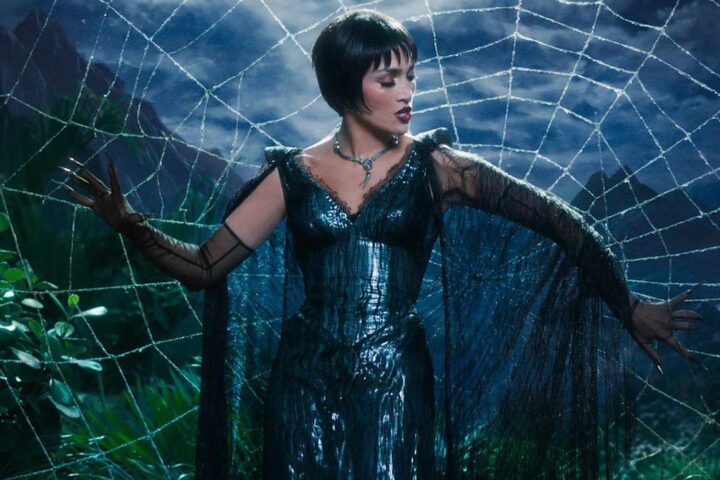As a targeted piece of provocation, Emerald Fennel’s Promising Young Woman is a zeitgeist bullseye. A scathing condemnation of rape culture pitched as a darkly comic thriller for the #MeToo era, it features a never better Carey Mulligan as an avenging angel on a quest to systematically take down promising young men all up to one thing – no good.
In a take no prisoners performance, Mulligan is med school dropout turned barista Cassie, who at age 30 still lives with mom and dad (Jennifer Coolidge, Clancy Brown) and eschews any social or romantic life in favor of trolling local watering holes, alone, conducting a perverse social experiment.
Testosterone-fueled happy hours prove the perfect hunting ground for apex predator Cassie, whose mark is bro culture—the kind of young, professional guys who present “nice” yet complain about gender equity at the office while rationalizing that overserved single ladies are just asking for it.
Blind drunk Cassie looks the perfect target for the average horndog looking to score, but her sophisticated act – stone cold sober yet pretending to be blitzed out of her mind, alone and in need of rescue – drives a next-level manipulation. Predictably, a seemingly nice guy will offer to get her home safely, which always includes just one more drink at his pad followed by attempted sex without consent. It is a familiar story ripped from today’s headlines.
Despite her protestations, the men go to the brink of sexual assault, at which moment Cassie drops the ruse, suddenly lucid and bent on doling out lessons. These tense moments provide Mulligan an on-a-dime switcheroo routine that is at once entertaining and scary. Who is this woman? What is the source of her rage?
Fennell and Mulligan make a few things crystal clear – that young professional men, even the “good” guys, are all cut from the same cloth, believing that women are there for the taking, up for blacked out sex and lifeless sex dolls for entertainment; consent is always trumped by their control. These are edgy encounters and the actors in them, including Adam Brody and Christopher Mintz-Plasse, usually cast as benign, harmless or comic, do not so much play against type as suggest that “nice” guys may also harbor aggressions.
Cassie charts her many conquests as candy-colored hash marks recorded in journal resembling a pubescent diary, whiling away days in the coffee house for boss Gail (a wry Laverne Cox), as close to friendship as Cassie allows. This double life is intriguing to watch, to say the least.
Things heat up on the unexpected reappearance of Ryan (a very funny Bo Burnham in a challenging role), a former college classmate and fledgling pediatrician, and reluctant Cassie finds herself drawn to his sincerity and lack of alpha energy. But his presence dredges up painful college memories, namely those that drove this formerly promising young woman (and thwarted future doctor) into a tailspin.
Cassie, stunted from an unhealed campus incident (not what we initially guess), orchestrates deliciously diabolical ways of revisiting the past and its accomplices, including a vapid, formerly close friend (a terrific Alison Brie) and a disingenuous dean (Connie Britton), who deems her role to be protector of the big men on campus. She pays for her ethical lapse on the blunt end of Cassie’s wicked manipulations.
Cassie is routinely called “crazy” in the film, and while she resists such a label, the movie asks us to consider the extremities of her ideology. While she is a troubled and enigmatic character that damaged and unable to heal, the movie’s young men – counterparts to the Vanderbilt football team that raped a woman in a university dorm room or exonerated Stanford rapist Brock Turner, who assaulted a girl on a dumpster – are a bigger problem, having normalized sexual violence as sport. Consider the tables turned.
It might be easy to villainize the men here, but there is one repentant perpetrator, played by Alfred Molina as the attorney who railroaded the victim years earlier, and who has suffered a nervous breakdown because of it. In a startling scene, he begs Cassie for forgiveness, which is surprisingly granted.
Tone is everything in this stylized movie, and Fennell, an actress on The Crown and showrunner for Killing Eve, assuredly balances pitch black humor, low-key romance, genuine pathos, a lampoon of romcom conventions and an effective jolt of horror in a picture that posits unease as entertainment. We never know quite how to take it.
She’s also crafted a terrific looking and sounding film, featuring strategically placed pop songs by Charli XCX, DeathbyRomy, Paris Hilton and a slow tempo string cover of Britney Spears’ Toxic. Michael Perry’s production design and Benjamin Kracun’s cinematography create a world in crayon-colored pastels, from the safe haven of the colorful coffee house to the family’s gauche, bric-a-brac home, including Cassie’s dollhouse bedroom, suggest childlike infantilization. Fennell has said that Mulligan’s look – all fuzzy sweaters, full blonde mane, pink and blue softness – was designed to depict how the world expects a woman to appear, and here it devilishly conceals what lurks beneath.
It should come as no surprise that the smartest person in this room is played by Mulligan, the great British actress who received an Oscar nomination for 2009’s An Education and has since turned in terrific performances in films like Suffragette, Shame, Inside Llewyn Davis and Wildlife. At 35, this film makes her a bona fide star, and were it a normal year at the multiplex audiences would be lining up.
Cassie will come to be known not merely as career defining for its star, but as a cult character to be revisited, debated and admired in future decades. The role gives Mulligan much latitude – she’s supremely smart, confident, manipulative, fractured, vulnerable, bold – and how she navigates this gauntlet is to be relished.
Promising Young Woman is original, bracing, uncomfortably amusing and, finally, shocking. It steadfastly refuses to pull punches, right to its final scene. No one who sees it will be without reaction.
4 stars.



